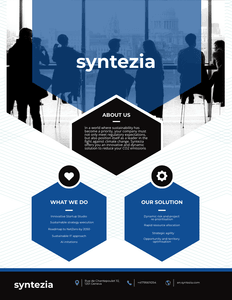



artificial intelligence advisory
- Engagements
- Services
- Services catalogue
- Events
- Methods and tools
- kickstart esg 4 hours
- Discover our ecosystem
- Mediation circles
- Funding
- Franchise
- Contact
- Contact us
- Blue economy
- Press room
- Historical
- HR
- Sustainability reports
- …
- Engagements
- Services
- Services catalogue
- Events
- Methods and tools
- kickstart esg 4 hours
- Discover our ecosystem
- Mediation circles
- Funding
- Franchise
- Contact
- Contact us
- Blue economy
- Press room
- Historical
- HR
- Sustainability reports



artificial intelligence advisory
- Engagements
- Services
- Services catalogue
- Events
- Methods and tools
- kickstart esg 4 hours
- Discover our ecosystem
- Mediation circles
- Funding
- Franchise
- Contact
- Contact us
- Blue economy
- Press room
- Historical
- HR
- Sustainability reports
- …
- Engagements
- Services
- Services catalogue
- Events
- Methods and tools
- kickstart esg 4 hours
- Discover our ecosystem
- Mediation circles
- Funding
- Franchise
- Contact
- Contact us
- Blue economy
- Press room
- Historical
- HR
- Sustainability reports

How can we use the hybrid lifestyle to reduce daily travel and our CO2 emissions?
What role does responsible digital play in these new behaviors?
The context
Moving better, thanks to responsible digital technology, what impact on the offer of mobility services in Geneva?
During the pandemic, we lost the habit of traveling every day from where we live to where we work. Hybrid and digital models and new forms of work have experienced unprecedented expansion. Teleworking, home office, third places, coworking, shared space, all must reinvent themselves and adapt.
What are the new places necessary for changing behavior and habits?
This eco-challenge invites you to look for concrete answers in order to reduce the volume of travel between commuting places and places of work.
In particular, we will be able to explore how to develop co-working, third places and teleworking on the outskirts of Geneva.
Among the possible solutions, we will seek to develop new digital solutions (Application, platform, autonomous vehicle, Artificial Intelligence), which use the principles of open innovation, Open Data, Open API, Open Hardware, Open Source, Creative Commons, and the principles of the functionality economy.
Digital transformation is one of the major levers that should help accelerate the transition to low-carbon mobility. In this campaign, we invite all project leaders to propose their ideas to reduce CO2 emissions produced by the movement of people or goods. Whether thanks to digital solutions that use artificial intelligence, connected object solutions, Open API or Open Data, how will responsible digital enable the necessary acceleration towards other forms of mobility, more respectful of the challenges of the cantonal climate plan.

What does hybrid working change?
At a time when a return to the world before seems possible, will we want to return to our bad habits, or will we permanently change working conditions and the number of trips? Are we still going to do this return flight for just one meeting?
Will we continue to go to the office to check emails or make a phone call?
What are the new places necessary for changing behavior and habits?

Let's realize the potential of our ideas!
This eco-challenge invites you to look for concrete answers in order to reduce the volume of travel between commuting places and places of work.
In particular, we will be able to explore how to develop co-working, third places and teleworking.
Among the possible solutions, we will seek to develop new digital solutions (Application, platform, autonomous vehicle, Artificial Intelligence), which use the principles of open innovation, Open Data, Open API, Open Hardware, Open Source, Creative Commons, and the principles of the functionality economy.
Digital transformation is one of the major levers that should help accelerate the transition to low-carbon mobility. In this campaign, we invite all project leaders to propose their ideas to reduce CO2 emissions produced by the movement of people or goods. Whether thanks to digital solutions that use artificial intelligence, Mobility-as-a-Service solutions, MaaS, connected objects, Open API or Open Data, how digital is going -it allows the necessary acceleration towards other forms of mobility, more respectful of the challenges of the cantonal climate plan.


